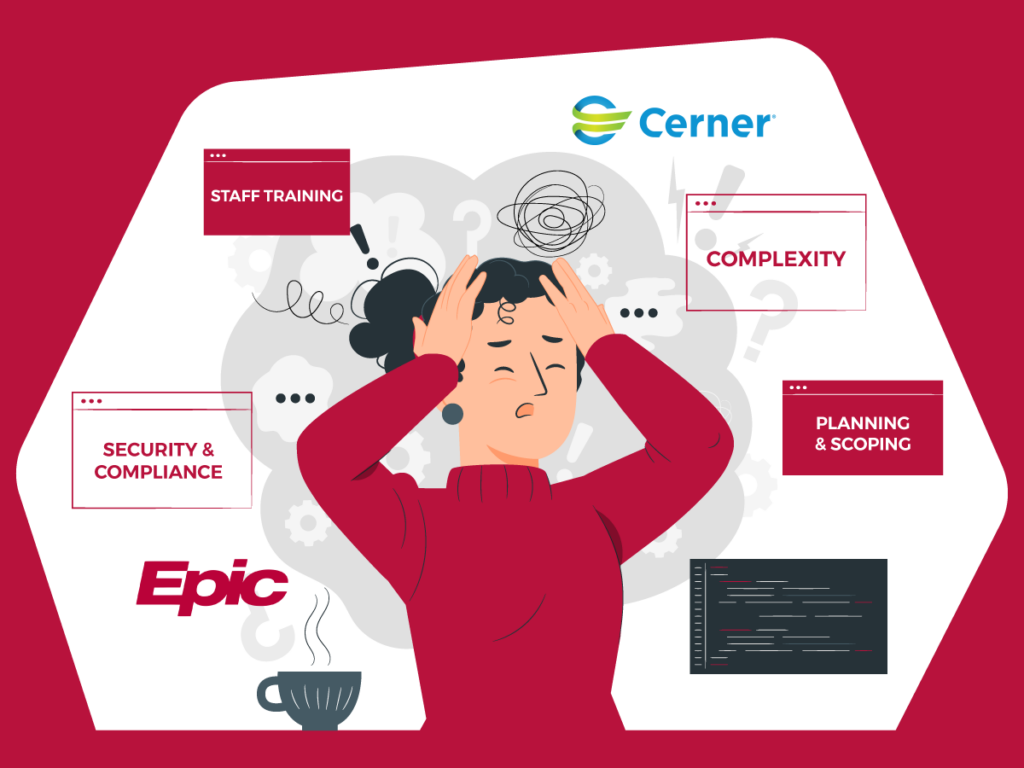
The Biggest Mistakes Physician Advisors and Revenue Cycle Management Companies Make When Integrating with Epic and Cerner
The healthcare landscape is becoming increasingly reliant on electronic health records (EHR) systems like Epic and Cerner to streamline operations, ensure compliance, and improve patient outcomes. For physician advisors and revenue cycle management (RCM) companies, integrating with these EHR giants is crucial for achieving seamless workflows. However, many organizations encounter significant challenges during this integration process, leading to costly delays, inefficiencies, and missed opportunities. Understanding these common mistakes is essential to ensure a smooth and successful implementation.
One of the biggest mistakes companies make when integrating with Epic and Cerner is underestimating the complexity of these platforms. Both systems are highly sophisticated, with a multitude of custom configurations and workflows that can vary widely between healthcare organizations. Many physician advisors and RCM companies assume that a one-size-fits-all solution will work, but this often leads to integration issues down the line. Without a deep understanding of the nuances of each healthcare provider’s specific instance of Epic or Cerner, companies can end up facing compatibility problems and disrupted workflows.
Another common misstep is neglecting proper planning and scoping at the outset. Integration is not simply a technical task—it involves coordinating between IT, clinical, and operational teams to ensure that the right data is exchanged in the right way. Failure to clearly define the project scope, identify key stakeholders, and anticipate potential challenges can cause bottlenecks during implementation. Physician advisors and RCM companies need to have a thorough project roadmap that outlines integration goals, timelines, and resource allocation to avoid unexpected complications.
Security and compliance are also often overlooked during the integration process. With the exchange of sensitive health information, compliance with regulations such as HIPAA is non-negotiable. Many organizations fail to prioritize security at the integration level, which can expose them to vulnerabilities and potential legal liabilities. Ensuring that data is transferred securely and that privacy protocols are maintained is a critical component of successful integration. Failing to take this into account can lead to significant financial and reputational risks.
Additionally, physician advisors and RCM companies frequently underestimate the importance of staff training. Even after a successful integration with Epic or Cerner, if the end-users—physicians, administrative staff, and billing teams—are not adequately trained on how to use the integrated system, the organization will struggle to realize the full benefits. Companies should invest in comprehensive training programs to ensure that their teams are fully prepared to work with the newly integrated system from day one.
To navigate these complexities, many physician advisors and revenue cycle management companies are turning to external experts with specialized experience in EHR integration. Itirra, a Washington State-based health tech lab, has been a leader in designing, developing, and deploying bespoke Epic and Cerner HL7 and SMART on FHIR integration apps for over a decade. With extensive experience working closely with healthcare providers, Itirra helps organizations integrate seamlessly with these EHR systems, addressing the unique needs of each provider.
Itirra’s approach is tailored to each client, providing customized solutions that align with their specific workflows, compliance requirements, and data exchange needs. By leveraging Itirra’s expertise, physician advisors and RCM companies can avoid the common pitfalls of EHR integration, ensuring a smooth process that improves operational efficiency, enhances data security, and ultimately leads to better patient outcomes.
In conclusion, while integrating with Epic and Cerner can be a challenging task for physician advisors and revenue cycle management companies, understanding the common mistakes and partnering with an experienced health tech lab like Itirra can significantly mitigate risks. With the right strategy, planning, and expertise, organizations can achieve seamless integration, unlocking the full potential of their EHR systems to enhance patient care and streamline operations.
Contact Itirra today to learn more!

